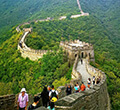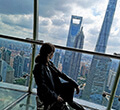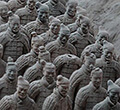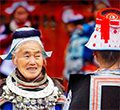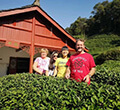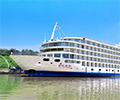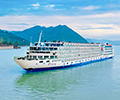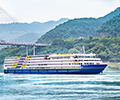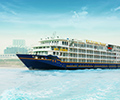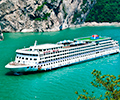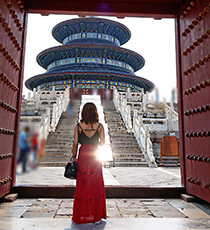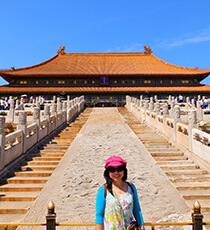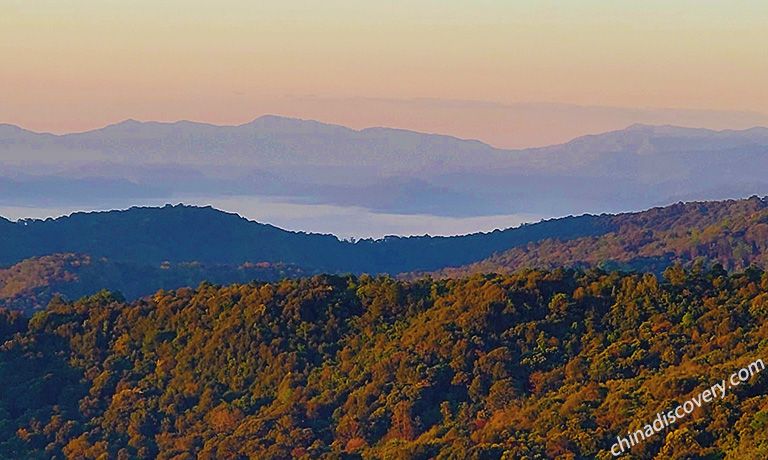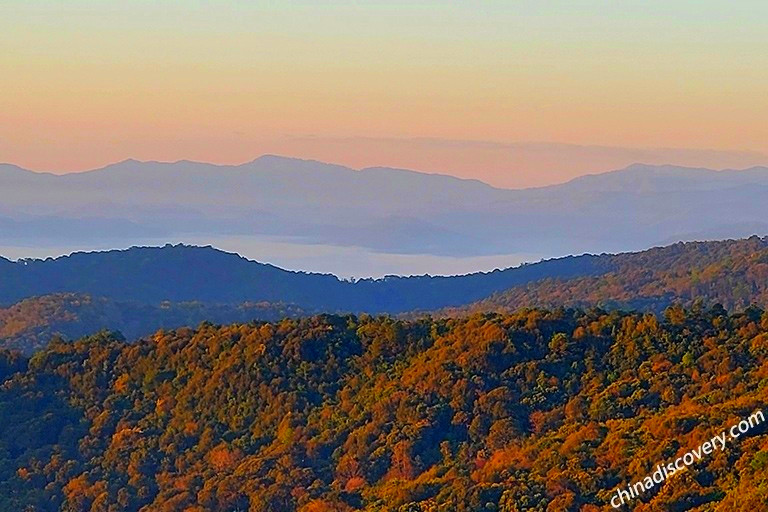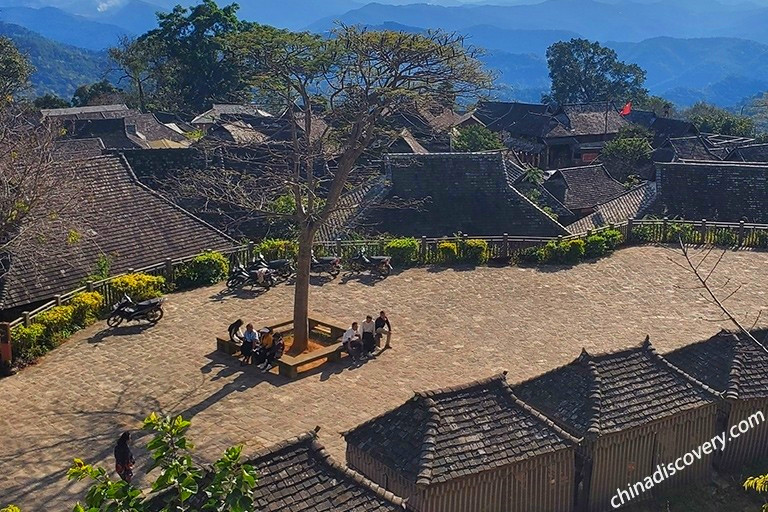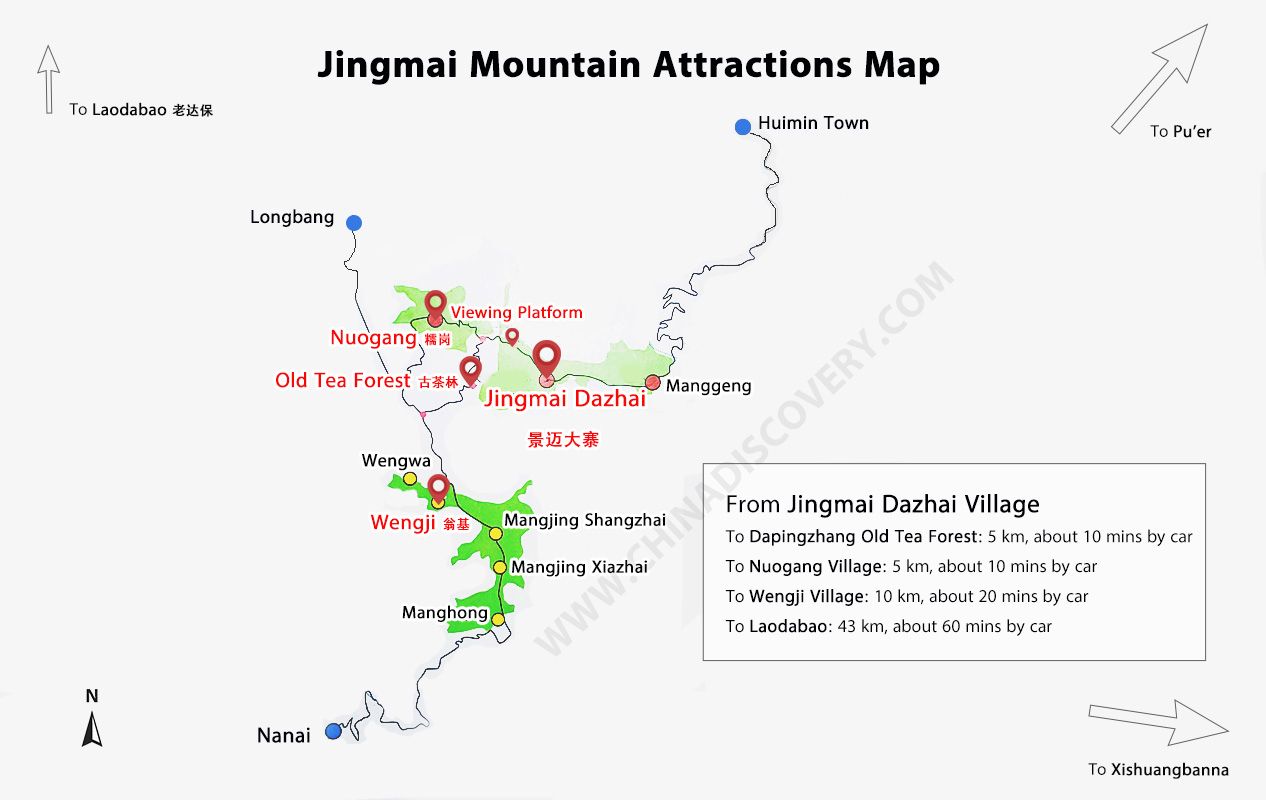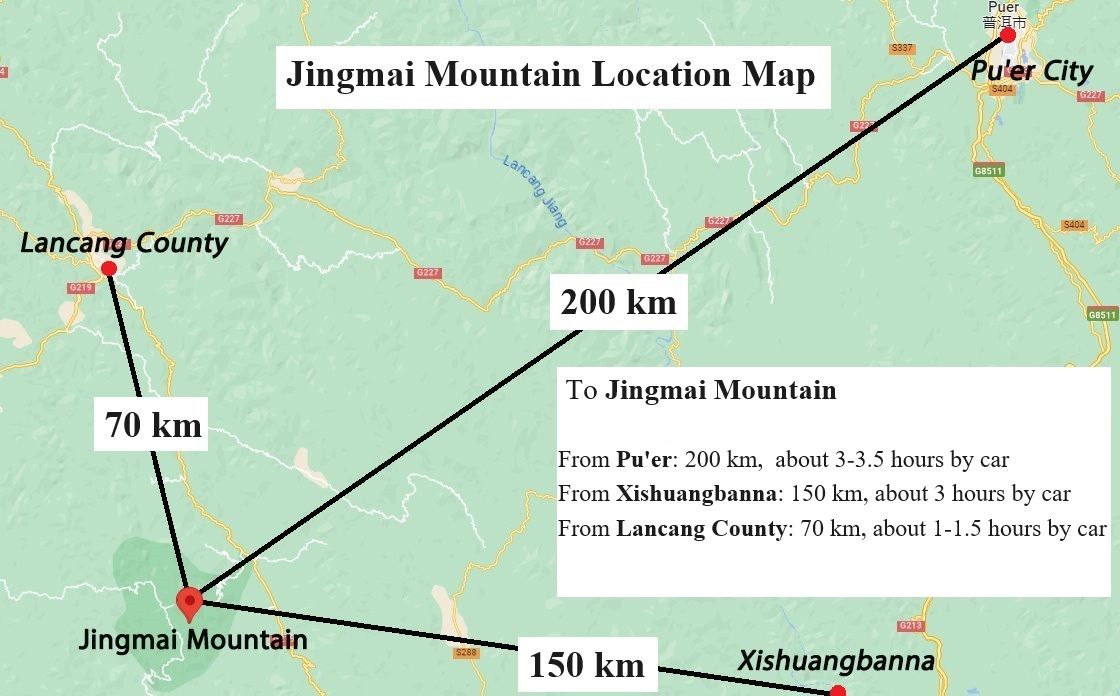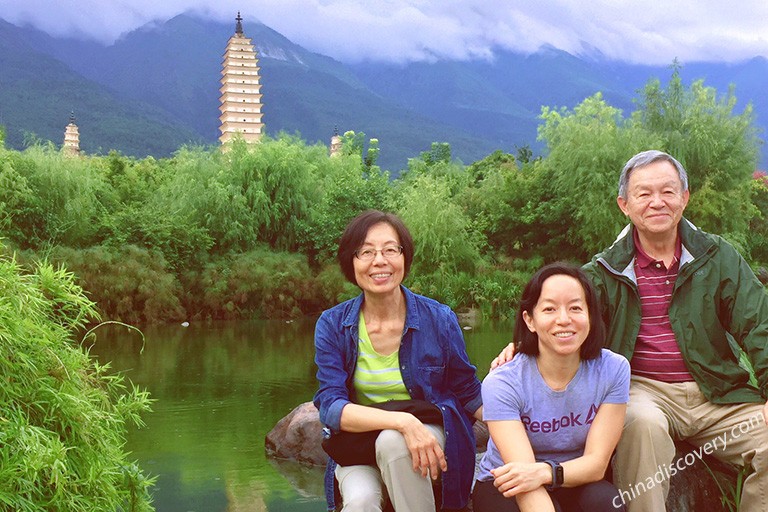Outstanding Culture Value of Jingmai Tea Culture
Located in Lancang River basin, Jingmai Mountain has an average altitude of 1,400 meters, and its mild climate has created the oldest tea forests eco-region in the world. Tea trees in Jingmai Mountain rely on biological chains and insect chains in primeval forests to self-regulate, and the traditional cultivation of tea trees under forests' canopies method has kept for thousands of years.
Jingmai Mountain has been successfully listed as a world cultural heritage by virtue of the integrity of the old tea forests, the uniqueness of the ancient architectural community and the inheritance of tea culture activities. Experts praise the old tea forests in Jingmai Mountain as: "A miracle in the history of tea culture", "History and Nature Museum of Tea Culture", "The origin of tea trees cultivation under forests", "The Wonders of Human Farming Civilization".
History and Development of Jingmai Pu-erh Tea
Jingmai Mountain has cultivated Pu-erh tea trees over 2,000 years. Pu-erh tea produced in Jingmai Mountain is among the finest in China. Historically, Jingmai Pu-erh tea was traded along the Ancient Tea Horse Road, reaching all across China and even Southeast Asian countries.
Pu-erh tea is one of the most famous teas in China. It has a flavor profile similar to black tea, but it belongs to the category of fermented teas. It is often sold in the form of compressed tea cakes or bricks, which can be stored for many years. Over time, Pu-erh tea undergoes natural fermentation and aging, leading to changes in its taste and mouthfeel. It is believed to have many potential health benefits, including aiding digestion, aiding in weight management, and regulating cholesterol. And it also holds a place in traditional Chinese medicine.
Chinese tea culture is vast and profound. Not just Pu-erh tea, China also boasts numerous famous teas, including Longjing Tea, Da Hong Pao, Tie Guan Yin, Huangshan Maofeng, Emei Xueya and among others.
 Panorama View of Jingmai Mountain
Panorama View of Jingmai Mountain
 Pu-erh Tea Spirit Tree
Pu-erh Tea Spirit Tree
Unique Tourism Value of Jingmai Mountain
Jingmai Mountain was the top recommended place of "Top 10 Best Travel Places to Experience Spring" by Chinese National Geography in 2016, and was also listed as "2022 World's Best Travel Destination" by National Geographic in 2021.
Not just for tea culture, thousand-year-old villages and ethnic minority culture are also the highlights in Jingmai Mountain. For thousands of years, the various ethnic groups that have always lived here for generations have lived in symbiosis with old tea forests. The ancient architectural communities, the faith and the traditional spirit carried by the indigenous people are the unique finishing touches of cultural heritage in Jingmai Mountain. The Blang (布朗族) are the only ethnic minority in China that live on tea, together with more than ten ethnic minorities such as Dai (傣族), Lahu (拉祜族), Wa (佤族), etc. have jointly preserved the oldest and most complete tea culture and folk customs about tea.
Top Attractions in Jingmai Mountain
Jingmai Mountain has 5 old tea forests areas and 2 large villages, Jingmai (mainly Dai) and Mangjing (mainly Blang), including 9 traditional villages such as Wengji, Nuogang, Manghong, etc. Tasting Pu-erh tea, watching sea of clouds and visiting ancient villages are the must-to-do lists in Jingmai Mountain.
 Ethnic Minorities in Jingmai Mountain
Ethnic Minorities in Jingmai Mountain
Dapingzhang Old Tea Forest (大平掌古茶林)
Dapingzhang old tea forest, named for its flat terrain, is the largest old tea forest in Jingmai Mountain. 1500 meters is just the most suitable altitude for the growth of old tea trees, so there become the core production area of Jingmai Pu-erh tea. With a history of more than 1,800 years, the old tea forest here is currently the best-preserved, oldest and largest cultivated old tea forest in the world. There are numerous old tea trees that are more than 500 years old and the tea spirit tree that has grown for thousands of years, making this place become the best place to enjoy the old tea forests and known as the "Nature Museum of Tea". The lush old tea forests and sweet tea aroma make this place filled with unique natural aroma, with the reputation of "Provence of the East".
Jingmai Dazhai Village (景迈大寨)
Jingmai Dazhai village is the first settlement after the Dai ancestors migrated to Jingmai Mountain. Legend has it that the ancestor of the Dai people Zhao NuoLa led his entourages to pursue a red deer to Jingmai Mountain and decided to settle down. He also named here "Jingmai", which means "new city". The traditional residential buildings of Dai village well preserved in here, with village center and buddhist temple as the main centre, presenting a centripetal layout. There are two buddhist temples with the old style well preserved and Jingmai Buddha Temple is one of the core religious sites in Jingmai Mountain. Here you can not only watch the sea of clouds at the Golden Pagoda, but also visit the Dai ancient villages and Dai people's dwelling houses to taste the local Pu-erh tea.
Wengji Village (翁基古寨)
Wengji village is a thousand-year-old village of the Blang ethnic group built on the mountain with an altitude of 1,700 meters, and well kept the traditional architectural pattern and historical style of the Blang ethnic village. Most of the Blang houses are wooden buildings, decorated with tea-shaped totem on the roof, and the entrance of the houses face the center of the village, and all houses are arranged along the contour line around the center of the village. Wengji village retains the original Blang ethnic style, here you can visit ancient villages, old cypress trees, buddhist temples and other landscapes. The traditional handmade Pu-erh tea by the Blang people is one of the must-experience items when you come here.
Nuogang Village (糯岗古寨)
About 9 kilometers north of Wengji village is the Nuogang village of the Dai people. "Nuogang" in Dai language means "place where deer drink water". Nuogang village, situated in the mountain col and surrounded by forests and tea trees, is the purest and most primitive thousand-year-old village in Jingmai Mountain, and is also the core area of Jingmai cultural heritage. Traditional Dai houses are clustered here, and the cascading roofs in the dense forest are full of primitive and quaint atmosphere. The viewing platform at the highest of the village has a wide view and you can see the panorama view of the whole village.
Laodabao (老达保)
Laodabao, 30 kilometers south of Lancang County, is a typical Lahu village, which not only retains intact traditional wooden architecture, but is also one of the inheritance bases of the national intangible cultural heritage protection list "MuPaMipa (牧帕密帕)" - the music city of the Lahu people. Here, you can enjoy the folk literature "MuPaMipa", as well as asparagus and dance performances to fully experience the warm and hospitable of the Lahu people.
 Dapingzhang Old Tea Forest
Dapingzhang Old Tea Forest
 Jingmai Dazhai Village
Jingmai Dazhai Village
 Beautiful View at the Golden Pagoda
Beautiful View at the Golden Pagoda
 Wengji Village
Wengji Village
 Lahu Village
Lahu Village
Recommended Routes to Visit Jingmai Mountain
You'd better spend 2-3 days to explore Jingmai Mountain. There are two recommended routes for your reference.
2 Days Classic Jingmaishan Tour
Day 1: Head to Jingmai Mountain and visit Jingmai Dazhai Village, the viewing platform and surrounding areas;
Day 2: After watching the sunrise at the Golden Pagoda, visit Nuogang and Wengji villages and go to Dapingzhang Old Tea Forest, then leave Jingmai Mountain.
3 Days Jingmaishan Leisure Tour
Day 1: Head to Jingmai Mountain and visit Jingmai Dazhai Village, the viewing platform and surrounding areas;
Day 2: After watching the sunrise at the Golden Pagoda, visit Nuogang village and go to Dapingzhang Old Tea Forest for leisure hiking;
Day 3: Visit Wengji and Mangjing villages, then leave Jingmai Mountain.
Tips: The distance between the scenic spots in Jingmai Mountain is not far, but public transportation only has a medium-sized bus with irregular times, so it is necessary to charter a car in advance.
Jingmai Mountain Travel Tips
1.Jingmai Mountain Weather
Jingmai Mountain belongs to the subtropical mountain monsoon climate, with distinct dry and wet seasons. The annual average temperature in here is 18°C, warm and humid, suitable for all seasons, and spring and autumn are the seasons for picking Jingmai Pu-erh tea. Since the temperature in the mountains varies greatly, it is recommended to prepare a coat in advance.
2.Jingmai Mountain Photography Tips
The sea of clouds, sunrise and sunset, starry sky and winter cherry blossoms are all the spectacular sights that you cannot miss in Jingmai Mountain. The best time to photograph the sea of clouds is from November to February, and on a clear night you can even see the sea of clouds under the moon. From December to February, the winter cherry blossoms are in full bloom, and the mountain will turn into a pink world.
3.Jingmai Mountain Festival
In April, the Blang Tea Ancestor Festival will be held, which is a traditional festival of the original religion of the Blang people, expressing nostalgia and worship of ancestors at the beginning of the new year, which has last for thousands of years. In addition, there are traditional festivals with regional characteristics, such as the Songkran Festival, the Closing Festival, the Opening Festival, etc.
4.Jingmai Mountain Accommodation
There are different types of hotels in Jingmai Mountain that you can choose. Jingmai Brilliant Resort, located in the old tea forests scenic area, is a perfect choice to experience the natural scenery of Jingmai Mountain, and the regular events related to tea culture make it an ideal holiday resort for tea lovers. Apart from that, the inns in Jingmai Dazhai Village are also a good choice, where not only can watch the sunrise, sunset and sea of clouds, but also close to other scenic spots.
 Beautiful Sunrise in Jingmai Mountain
Beautiful Sunrise in Jingmai Mountain
 Sea of Clouds in Jingmai Mountain
Sea of Clouds in Jingmai Mountain
 Accommodation in Jingmai Mountain
Accommodation in Jingmai Mountain
Where & How to Get to Jingmai Mountain
Jingmai Mountain is located in Huimin Town, Lancang Lahu Autonomous County, Pu’er City, Yunnan Province (云南普洱市澜沧拉祜自治县惠民镇), in southwestern China, and also the junction of Pu'er, Xishuangbanna and Myanmar, east to Xishuangbanna, and west to Myanmar. It is 650 kilometers away from Kunming, the capital city of Yunnan Province, and 800 kilometers away from Lijiang.
Jingmai airport in Lancang county has few flights to and from Kunming, Lijiang, Pu'er and Xishuangbanna. You'd better choose to arrive at the two largest cities - Pu'er and Xishuangbanna that closest to Jingmai Mountain, where can be reached by plane or high-speed train from many other cities in China. There is a regular shuttle bus from Pu'er City to Jingmai Mountain, but the drop-off station still has long distance from the main scenic spots. It is recommended to charter a car and drive about 3 hours to Jingmai Mountain.
Travel Jingmai Mountain with China Discovery
As Jingmai Mountain is not convenient in public transportation, it is highly recommended to find a reliable travel agency to help with the transfer. If you want to free yourself from troublesome trifles and experience the culture of Jingmai Mountain in depth, we strongly recommend considering our worry-free tour packages. Actually, if you book a private tour package with us, the sightseeing, dining, accommodation and transfer will all be covered. Our local tour guide and driver will escort you to the main scenic spots in Jingmai Mountain with speed and convenience, and take care of all the details. You just need to focus on sightseeing!
How to Plan a Jingmai Mountain Tour
Since the popular tourist attraction Xishuangbanna is only about 150 kilometers away from Jingmai Mountain, for most people, they usually choose to go to Xishuangbanna before Jingmai Mountain, and we can customize a Xishuangbanna tour including Jingmai Mountain according to your needs. Besides, if you are interested in tea culture, we can also customize an exclusive tea culture exploration tour for you. Contact us to customize an all-inclusive tour package now!
Recommended Tour Packages:
▶ 3 Days Escape Tour to World Heritage Jingmai Mountain
▶ 6 Days Untamed Yunnan Tour from Tropical Xishuangbanna to Jingmai Mountain Ancient Tea Plantations
Apart from that, most travelers prefer to arrange Kunming as their first station in Yunnan trip, and you can also plan more another days to discover other classic cities in Yunnan, such as Dali with profound Dali Old Town and interesting Nanzhao Kingdom stories, Lijiang with famous ancient towns and interesting Dongba ethnic minority culture, Shangri-La with the pure land beauty in the world, Yuanyang with incomparable Yuanyang Rice Terraces and lovely mushroom-shaped houses, etc. It usually needs 6-15 days based on your exploration depth!
Recommended Yunnan Tour Packages:
▶ 6 Days Best of Yunnan Tour (Lijiang / Shangri-La / Kunming)
▶ 8 Days Classic Yunnan Tour (Kunming / Dali / Lijiang / Shangri-La)
 Xishuangbanna Buddhist Temple
Xishuangbanna Buddhist Temple
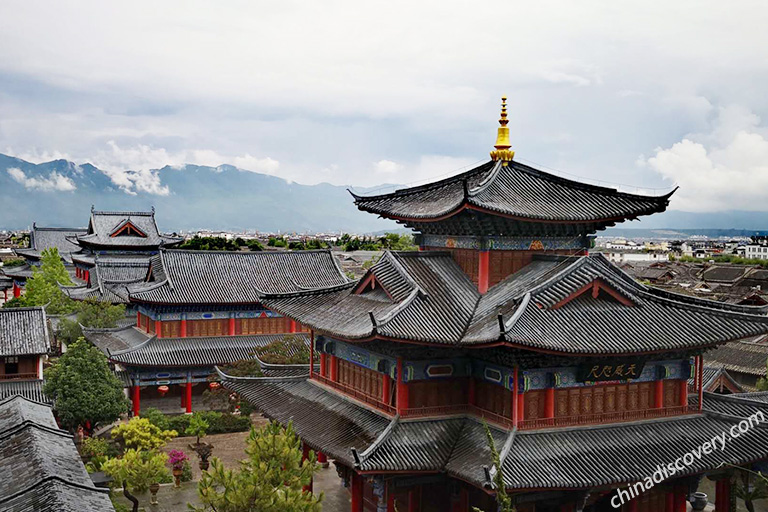 Lijiang Old Town
Lijiang Old Town
▶ 11 Days Amazing Yunnan Tour (Kunming / Yuanyang / Jianshui / Kunming / Dali / Lijiang / Shangri-La)
Useful Yunnan Travel Articles
Recommended Yunnan Tours
Top 3 Yunnan tours chosen by most customers to explore Yunnan in the best way. Check the detailed itinerary, or tailor your own trip now with us.

3 Days Escape Tour to World Heritage Jingmai Mountain
Jingmai Mountain
Start planning your tailor-made holiday to China by contacting one of our specialists. Once inquired, you’ll get a response within 0.5~23.5 hours.
Customize a TripHave a question? Get answers from our travel experts or guests
- Your Question:
- Your Name:
- Your Email:
- Submit
